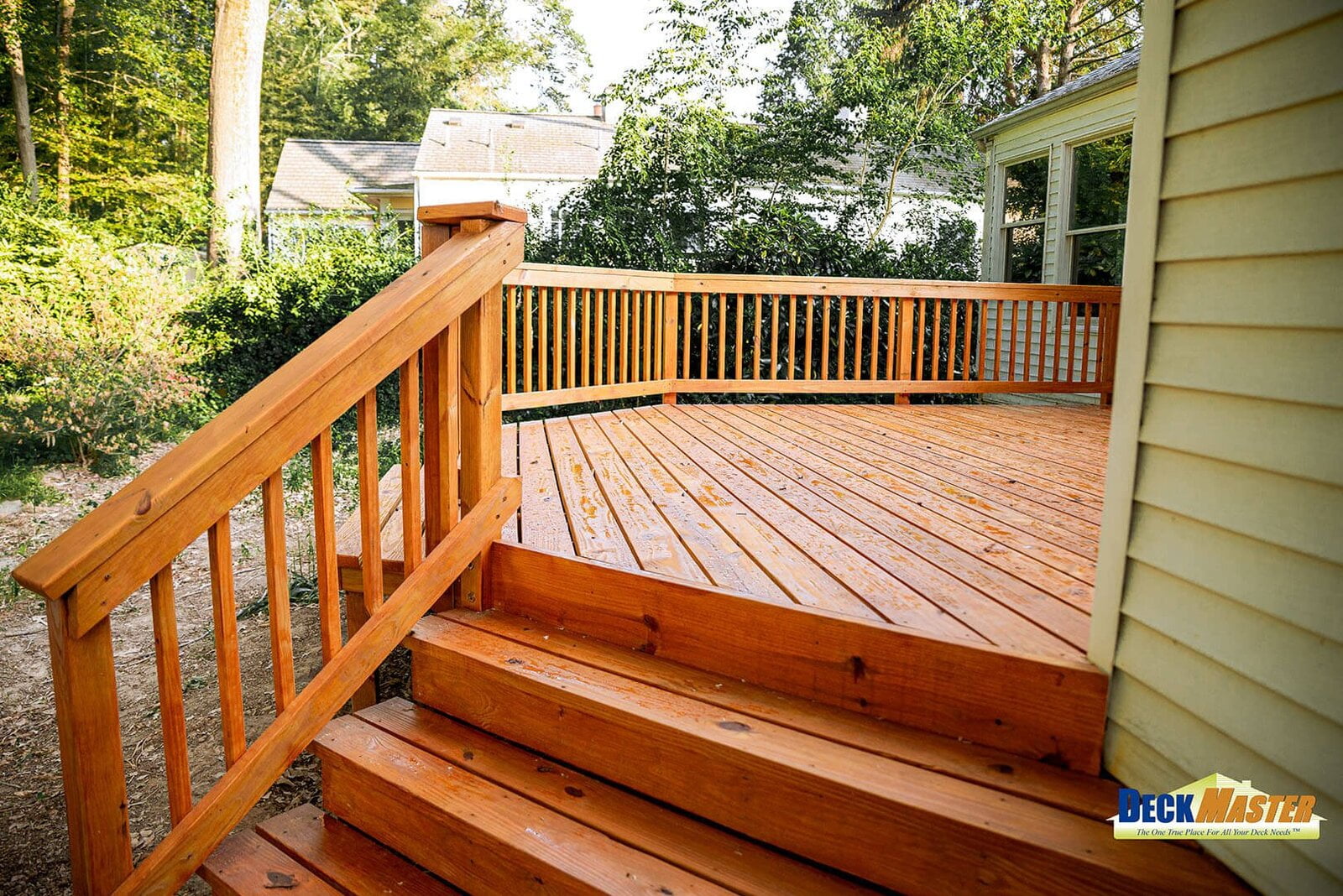Your balcony is a precious outdoor space that offers a breath of fresh air and a connection to the outdoors. To ensure its longevity and usability, choosing the right flooring is paramount. Waterproof balcony flooring not only enhances the aesthetics but also protects against the elements. In this informative guide, we'll delve into the benefits, options, and considerations of waterproof balcony flooring to help you create a functional and beautiful outdoor oasis.
Benefits of Waterproof Balcony Flooring
Benefits of Waterproof Balcony Flooring
Benefits of Waterproof Balcony Flooring
1. Weather Resistance: Balconies are exposed to changing weather conditions. Waterproof flooring prevents water damage, rot, and decay, extending the life of your balcony.
2. Mold and Mildew Prevention: Moisture accumulation can lead to mold and mildew growth. Waterproof flooring inhibits their development, promoting a healthier living environment.
3. Easy Maintenance: Waterproof materials are typically easy to clean and require minimal maintenance, making them ideal for outdoor spaces.
4. Aesthetic Appeal: Waterproof balcony flooring comes in various designs, colors, and textures, allowing you to create a visually appealing outdoor space that complements your style.
Options for Waterproof Balcony Flooring
Options for Waterproof Balcony Flooring
Options for Waterproof Balcony Flooring
1. Interlocking Deck Tiles: These tiles are easy to install and offer a versatile solution. They come in various materials like wood, composite, and rubber, offering both aesthetics and functionality.
2. Vinyl Decking: Vinyl is a durable and low-maintenance option. It's available in a range of colors and patterns, allowing you to customize the look of your balcony.
3. Rubberized Coatings: These coatings create a seamless and waterproof surface. They are ideal for balconies with irregular shapes and offer slip resistance.
4. Composite Decking: Combining wood fibers and recycled plastics, composite decking is highly durable and resistant to moisture, mold, and rot.
Considerations and Tips
Considerations and Tips
1. Installation: Depending on your chosen material, consider whether you'll need professional installation or if it's a DIY-friendly option.
2. Durability: Balcony flooring should withstand foot traffic, furniture placement, and weather conditions. Choose materials known for their durability.
3. Climate Compatibility: Consider your local climate. Materials that can withstand both hot and cold temperatures are ideal for longevity.
4. Safety: Opt for commercial waterproofing options that offer slip resistance, especially if the balcony is exposed to rain or if you live in an area prone to wet conditions.
Maintenance and Care
Maintenance and Care
1. Regular Cleaning: Sweep away debris and clean the surface periodically to prevent dirt buildup.
2. Prompt Repairs: Address any damage or wear promptly to prevent further deterioration.
3. Sealing and Coating: Depending on the material, applying a protective sealant or coating can enhance the flooring's waterproof properties.
Creating waterproof balcony flooring not only enhances the visual appeal of your outdoor space but also ensures its long-term functionality. From interlocking deck tiles to vinyl options, there's a wide array of materials to choose from, each offering its unique benefits. By considering factors like durability, climate compatibility, and safety, you can select the ideal flooring that suits your lifestyle and adds value to your home. So, whether you're looking to revamp an existing balcony or planning for a new one, investing in waterproof flooring is a smart decision that will allow you to enjoy your outdoor oasis for years to come.
The Essential Guide to Shower Grout Sealer: Preserving Your Bathroom's Elegance
The Essential Guide to Shower Grout Sealer: Preserving Your Bathroom's Elegance
Your shower is not just a functional space; it's also a haven of relaxation and rejuvenation. To maintain its beauty and functionality, proper care is crucial. Shower grout sealer plays a pivotal role in safeguarding your shower's appearance and structural integrity. We'll delve into the importance, benefits, application, and maintenance of shower grout sealer.
Understanding the Importance of Shower Grout Sealer
Understanding the Importance of Shower Grout Sealer
Grout, the material that fills the gaps between tiles, is prone to moisture absorption, mold growth, and staining. A shower grout sealer acts as a protective barrier, preventing water, dirt, and contaminants from infiltrating the grout lines. This not only preserves the aesthetics of your shower but also prevents damage that can lead to costly repairs in the long run.
Benefits of Shower Grout Sealer
Benefits of Shower Grout Sealer
1. Water Resistance: Sealing the grout creates a barrier that repels water, reducing the risk of water damage to the underlying surfaces and minimizing the chances of mold growth.
2. Stain Prevention: Sealed grout is less porous, making it harder for stains to penetrate. This is particularly beneficial in areas with hard water or mineral deposits.
3. Easy Cleaning: Sealed grout is easier to clean because dirt and grime have a harder time adhering to the sealed surface.
4. Longevity: Regular exposure to water and cleaning agents can cause grout to deteriorate over time. Sealing prolongs the life of your grout, reducing the need for frequent repairs or replacements.
Application of Shower Grout Sealer
Application of Shower Grout Sealer
1. Preparation: Ensure the grout lines are clean, dry, and free from any debris. A thorough cleaning is essential to allow proper adhesion of the sealer for bathroom caulking.
2. Choose the Right Sealer: There are two main types of grout sealers: penetrating and surface sealers. Penetrating sealers soak into the grout, while surface sealers create a protective layer on top. Choose the type that suits your needs.
3. Application: Follow the manufacturer's instructions for applying the sealer. Typically, you'll use a brush or applicator to evenly coat the grout lines. Be cautious not to get sealer on the tiles themselves.
4. Drying Time: Allow the sealer to dry according to the instructions before exposing the shower to water. This may take a few hours to a day, depending on the product.
Maintenance of Sealed Shower Grout
Maintenance of Sealed Shower Grout
1. Regular Cleaning: Even with a sealer, regular cleaning is necessary to prevent soap scum buildup and maintain the appearance of your shower. Use a mild, non-acidic cleaner to avoid damaging the sealer.
2. Reapplication: Over time, the sealer may wear off due to foot traffic and cleaning. Depending on the product, you may need to reapply the sealer every one to three years.
3. Avoid Harsh Cleaners: Acidic or abrasive cleaners can degrade the sealer, so opt for gentle, pH-neutral options.
Conclusion
Conclusion
A well-maintained shower not only enhances the overall aesthetics of your bathroom but also contributes to its longevity. By investing in a quality shower grout sealer and following proper application and maintenance practices, you can ensure that your shower remains a haven of relaxation and beauty for years to come. Protecting your grout from moisture, stains, and deterioration not only saves you from potential repair costs but also elevates your everyday bathing experience. So, embrace the benefits of shower grout sealer and let your shower shine with timeless elegance.


